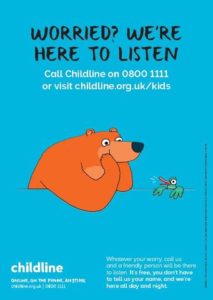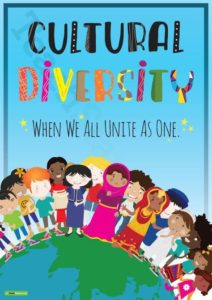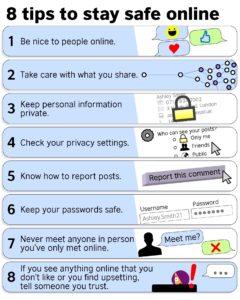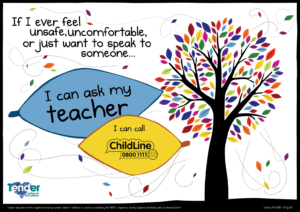ONLINE SAFETY
Have a look at the NSPCC and CEOP information below to support your knowledge of keeping children safe online…
https://www.nspcc.org.uk/keeping-children-safe/support-for-parents/techosaurus/
https://www.nspcc.org.uk/keeping-children-safe/online-safety/#guides
https://www.nspcc.org.uk/keeping-children-safe/online-safety/
https://www.ceopeducation.co.uk/
It’s important to stay informed about the apps your children are using. Many popular apps offer fun and creative ways to connect with friends but also come with risks such as exposure to strangers who pose a risk of harm, inappropriate content, or cyberbullying.
Regularly check the apps on your child’s device and have open discussions about their online activities.
Encourage them to share their experiences and teach them about privacy settings and safe online behaviour. By staying involved and informed, you can help ensure your child’s online experience is both fun and safe.
First and foremost-please look, check and note what your child is watching and engaging with online. We are deeply concerned that games may seem innocent when you might be checking in but the content is not always appropriate. Videos made with such games are also inappropriate with voice over conversations and comments, of which you would most likely not want your child exposed to. No child in our school should have any access to Tik Tok. If your child has this APP, please remove it as a matter of safeguarding.
If your older child is using any kind of social media, we advise you to remove devices from your child at night time, monitor their communications and ensure you have full knowledge about what your child is saying/receiving.

8 Steps to keep your child safe online:
- Explore together: Ask your child to show you their favourite websites and apps and what they do on them. Listen, show interest and encourage them to teach you the basics of the site or app.
- Chat little and often about online safety: If you’re introducing them to new learning websites and apps at home, take the opportunity to talk to them about how to stay safe on these services and in general. Ask if anything ever worries them while they’re online. Make sure they know that if they ever feel worried, they can get help by talking to you or another adult they trust.
- Help your child identify trusted adults who can help them if they are worried: This includes you and other adults at home, as well as adults from wider family, school or other support services who they are able to contact at this time. Encourage them to draw a picture or write a list of their trusted adults.
- Be non-judgemental: Explain that you would never blame them for anything that might happen online, and you will always give them calm, loving support.
- Supervise their online activity: Keep the devices your child uses in communal areas of the house such as in the living room or kitchen where an adult is able to supervise. Children of this age should not access the Internet unsupervised in private spaces, such as alone in a bedroom or bathroom.
- Talk about how their online actions affect others: If your child is engaging with others online, remind them to consider how someone else might feel before they post or share something. If they are considering sharing a photo/video of somebody else, they should always ask permission first.
- Use ‘SafeSearch’: Most web search engines will have a ‘SafeSearch’ function, which will allow you to limit the content your child can access whilst online. Look out for the ‘Settings’ button on your web browser homepage, which is often shaped like a small cog.
- Parental controls: Use the parental controls available on your home broadband and all Internet enabled devices in your home. You can find out more about how to use parental controls by visiting your broadband provider’s website.
PREVENT DUTY information and guides:
Parent-Guardian Online Radicalisation Information and Support
parent-guardian_online_radicalisation_information_and_support
parent_online safety handy booklet
Leaflets available from school
Leaflets and advice for you and your child are available from the entrance to our school. Please feel free to take some or ask in school for support if you have any concerns at all. We can offer you advice on parental controls and other ways in which you can keep your child safe online and when using social media. We hold annual Internet safety safeguarding workshops for parents but please pop in and see us for advice if you have any concerns at all. We are always happy to help.
1. Parent-Guardian Online Radicalisation Information and Support
Internet-Matters-Guide-Digital-Diet-Balancing-Screen-time
Parents-guide-to-internet-controls
Supporting-Young-People-Online
St Francis AUP for children and parental agreement letter
Thinkuknow eSafety website for infant children
Thinkuknow eSafety website for junior children
UK Safer Internet Centre – Parental support website for keeping children safe.
Vodafone Digital Parenting online magazine
How to use parental controls online
Online-Gaming-Guide-for-Parents
Video-Chat-and-webcams-Factsheet
Internet-Matters-Guide-Online-grooming-what-parents-need-to-knowInternet-Matters-Tips-Manage-children-digital-wellbeing
Internet-Matters-Infographic-Vulnerable-Children-in-a-Digital-World
A-Parents-Guide-to-Social-Media
Cyber-Bullying-Guide-for-Parents
With so much online learning-especially at the moment, please ensure you remember to keep safe online. Here is some useful advice and information:
It’s easy for a child to come across harmful content online whether by accident or on purpose. Internet filtering software is your line of defence. Here’s everything you need to know about internet controls in a handy guide, covering router filtering controls, parental software controls, ISP filtering controls and useful recommendations. Please click the link:Parents-guide-to-internet-controls
It is so important that we understand how to keep ourselves safe. We need to keep safe online, whilst we are out and about and help each other to be safe and happy. We have theme weeks eg Anti-Bullyng Week, Black History Month, Water Safety, Road Safety, Stranger Danger, Pantasaurus, Mini-Medics and much more. Parent information evenings are led by children. Have a look at some pictures on our Online Safety and Keeping me Safe section under Kid’s Zone
Internet Matters Online Safety Resources
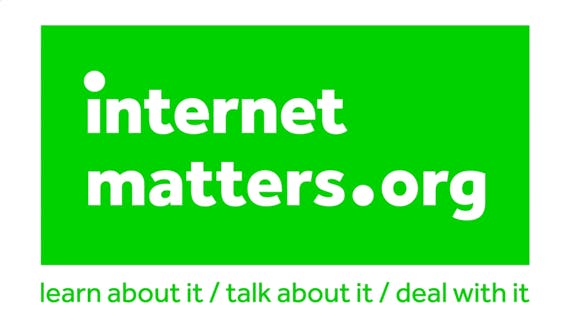
There are age-specific resources for early years primary and secondary education. Each section has teaching resources, a parent pack, common online safety issues for that age group, popular social media platforms for that age group and a list of additional resources.
This is an incredible set of free resources for nurseries, schools and parents.
Early Years – https://www.internetmatters.org/schools-esafety/pre-school/
https://www.nspcc.org.uk/keeping-children-safe/support-for-parents/techosaurus/
Primary – https://www.internetmatters.org/schools-esafety/primary/
Secondary – https://www.internetmatters.org/schools-esafety/secondary/
Thinkuknow – Parent and carers guide to sharing images (Primary)
Undressed
CEOP have repeatedly warned about young children being tricked into getting changed or undressed on camera by playing a ‘game’ or issuing a ‘challenge’ to see how fast they can get changed into different clothes or into a swimming costume. This might happen over video chat or livestreaming app; children often don’t even know this has happened; videos are often taken and then circulated. Please be nearby when your child is on their device and listen out for any suspicious activity.
Please download our Safer School APP, where you will receive alerts about current online safeguarding issues and trends to be mindful of. Thank you.
These useful posters may be helpful….
















































Click the link to view our Online Safety Newsletters! Online Safety Newsletters
PREVENT DUTY information and guides:
Parent-Guardian Online Radicalisation Information and Support
parent-guardian_online_radicalisation_information_and_support
parent_online safety handy booklet
Leaflets available from school
Leaflets on esafety advice for you and your child are available from the entrance to our school. Please feel free to take some or ask in school for support if you have any concerns at all. We can offer you advice on parental controls and other ways in which you can keep your child safe online and when using social media. We hold annual Internet safety safeguarding workshops for parents but please pop in and see us for advice if you have any concerns at all. We are always happy to help.
On this page you will be able to explore e-safety sites – please look at the links below where you will find age appropriate content for you to look at with your child.
1. Parent-Guardian Online Radicalisation Information and Support
Internet-Matters-Guide-Digital-Diet-Balancing-Screen-time
Parents-guide-to-internet-controls
Supporting-Young-People-Online
St Francis AUP for children and parental agreement letter
Thinkuknow eSafety website for infant children
Thinkuknow eSafety website for junior children
UK Safer Internet Centre – Parental support website for keeping children safe.
Vodafone Digital Parenting online magazine
How to use parental controls online
Online-Gaming-Guide-for-Parents
Video-Chat-and-webcams-Factsheet
Internet-Matters-Guide-Online-grooming-what-parents-need-to-knowInternet-Matters-Tips-Manage-children-digital-wellbeing
Internet-Matters-Infographic-Vulnerable-Children-in-a-Digital-World
A-Parents-Guide-to-Social-Media
Cyber-Bullying-Guide-for-Parents
With so much online learning-especially at the moment, please ensure you remember to keep safe online. Here is some useful advice and information:
It’s easy for a child to come across harmful content online whether by accident or on purpose. Internet filtering software is your line of defence. Here’s everything you need to know about internet controls in a handy guide, covering router filtering controls, parental software controls, ISP filtering controls and useful recommendations. Please click the link:Parents-guide-to-internet-controls
Lots of information to support parents can be found at internetmatters.org. They provide online resources and advice to support and help families adjusting to a “new normal” following the measures taken to stop the spread of coronavirus. This dedicated space provides expert advice, resources and tools to make the best use of tech. On this website, you will find handy leaflets to support you or give you information regarding every area of protecting, raising awareness and supporting children at home:
Supporting-Young-People-Online
It is so important that we understand how to keep ourselves safe. We need to keep safe online, whilst we are out and about and help each other to be safe and happy. We have theme weeks eg Anti-Bullyng Week, Black History Month, Water Safety, Road Safety, Stranger Danger, Pantasaurus, Mini-Medics and much more. Parent information evenings are led by children. Have a look at some pictures on our Online Safety and Keeping me Safe section under Kid’s Zone

